Regional Security System
The Regional Security System (RSS) is an international agreement for the defence and security of the eastern Caribbean region.
History
The Regional Security System was created in 1982 to counter threats to the stability of the region in the late 1970s and early 1980s. On 29 October four members of the Organisation of Eastern Caribbean States—namely, Antigua and Barbuda, Dominica, St. Lucia, and St. Vincent and the Grenadines—signed a memorandum of understanding (MOU) with Barbados to provide for "mutual assistance on request". The signatories agreed to prepare contingency plans and assist one another, on request, in national emergencies, prevention of smuggling, search and rescue, immigration control, fishery protection, customs and excise control, maritime policing duties, protection of off-shore installations, pollution control, national and other disasters and threats to national security.[1] Saint Kitts and Nevis joined following independence in 1983, and Grenada followed two years later after Operation Urgent Fury, a combined U.S. and RSS invasion of the country. The MOU was updated in 1992 and the system acquired juridical status on 5 March 1996 under the Treaty which was signed at St. Georges, Grenada.
The RSS initially started as a U.S. instrument to combat the spread of Communism in the Caribbean region.[2][3] As of 2001, the RSS further cooperates with the CARICOM Regional Task Force on Crime and Security (CRTFCS).[4]
In June 2010, United States and Caribbean regional officials resumed a plan for close cooperation established under the former Partnership for Prosperity and Security in the Caribbean (PPS) from the Clinton era.[5] As part of the joint agreement the United States pledged assistance with the creation of an Eastern Caribbean Coast Guard unit among RSS countries.[6] The United States Coast Guard unit will underpin the wider US-Caribbean Basin Security Initiative (CBSI) which has deemed the RSS as "central to the CBSI’s success, given its reach across the Eastern Caribbean."[6]
Subsequently, Canada also pledged collaboration with the RSS bloc[7][8] to combat a threat of Central American criminal gangs from expanding into the English-speaking Caribbean region.[9]
Member States
The current member nations are:
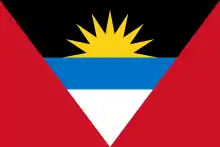 Antigua and Barbuda (since 1982)
Antigua and Barbuda (since 1982)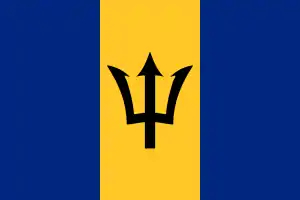 Barbados (since 1982)
Barbados (since 1982)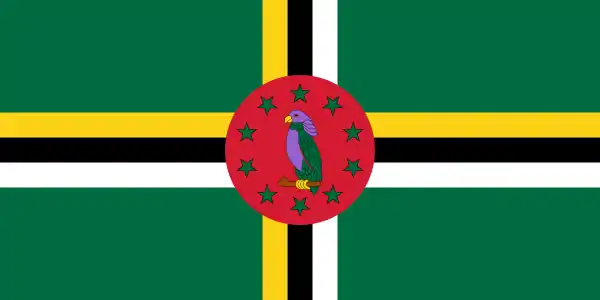 Dominica (since 1982)
Dominica (since 1982)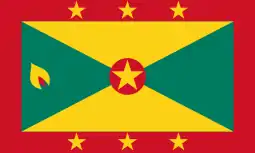 Grenada (since 1985)
Grenada (since 1985)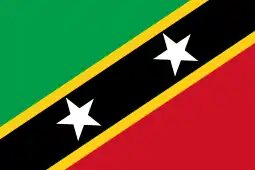 Saint Kitts and Nevis (since 1983)
Saint Kitts and Nevis (since 1983) Saint Lucia (since 1982)
Saint Lucia (since 1982) Saint Vincent and the Grenadines (since 1982)
Saint Vincent and the Grenadines (since 1982)
Previous activities
| Date | RSS Operation name | Country | Reason |
|---|---|---|---|
| 1983 | Grenada Intervention | Grenada | Restore a government in Grenada |
| 1989 | Hugo | Antigua, Montserrat and Saint Kitts and Nevis | Assistance in aftermath of Hurricane Hugo |
| 1990 | Coup | Trinidad and Tobago | Aftermath of an attempted coup d'état in Trinidad and Tobago |
| 1994 | Internal Security | Saint Kitts and Nevis | Prison riot |
| 1995 | Luis, Marilyn | Antigua and Saint Kitts and Nevis | Assistance in aftermath of Hurricane Luis and Hurricane Marilyn |
| 1998 | Georges | Saint Kitts and Nevis | Assistance in aftermath of Hurricane Georges |
| 1998 | Weedeater | Saint Vincent and the Grenadines | Eradication of cannabis |
| 2003 | Bordelais | Saint Lucia | Transfer prisoners to new prison facility |
| 2004 | Ivan Relief Efforts | Grenada | Assistance in aftermath of Hurricane Ivan |
| 2006 | Glendairy | Barbados | Prison uprising |
| 2009 | Operation VINCYPAC | St Vincent and the Grenadines | Eradicaton of cannabis |
| 2010 | Haiti | Haiti | Assistance in aftermath of the Haiti 2010 earthquake |
| 2017 | Dominica | Hurricane Maria Relief Efforts | Assistance in aftermath of the Hurricane Maria in 2017. RSS was instrumental in the restoration of order after widespread looting and destruction of property |
The R.S.S., as it is commonly referred to, is based in Barbados at the Paragon Centre, headed by many regional army chiefs. It mainly serves as a defence system for the Caribbean Sea, conducting many operations by detecting and combating cross-Atlantic and intra-Caribbean drug smuggling, protection of the sovereignty of the nations of the Caribbean, providing assistance to Caribbean countries at the request of governments and are usually the first to respond after natural disasters occur, such as hurricanes, floods and earthquakes.
See also
References
- "APPROACHES ON SECURITY IN THE CARIBBEAN REGION: Statement by Ambassador Odeen Ishmael of Guyana at the Meeting of the Committee on Hemispheric Security of the OAS Washington DC, 29 October 2002". Retrieved 17 December 2012.
- http://www.country-data.com/cgi-bin/query/r-3378.html
- Lewis, Patsy (2002). Surviving Small Size: Regional Integration in Caribbean Ministates. Kingston, Jamaica: University of West Indies Press. ISBN 976-640-116-0.
- Regional Task Force, The Caribbean Community (CARICOM) Implementation Agency for Crime and Security (IMPACS)
- Singh, Rickey (13 June 2010). "A USA-CARIBBEAN 'RENEWAL'?". Guyana Chronicle. Retrieved 17 September 2010.
- Staff writer (17 April 2010). "CARIBBEAN SECURITY: United States to help upgrade Regional Security System". Caribbean News Agency (CANA). Archived from the original on 2011-07-09. Retrieved 17 September 2010.
- staff writer (16 September 2010). "Security important to Canada". The Barbados Today. Archived from the original on 6 July 2011. Retrieved 17 September 2010.
- Staff writer (4 July 2010). "Canada to boost help to region". Nation Newspaper. Archived from the original on 2012-03-20. Retrieved 5 July 2010.
- H., J. (17 September 2010). "Region warned of displaced criminal elements". The Barbados Advocate. Archived from the original on 2012-03-11. Retrieved 17 September 2010.
Notes
- Staff writer (17 April 2010). "CARIBBEAN SECURITY: United States to help upgrade Regional Security System". Caribbean News Agency. Archived from the original on 2011-07-09. Retrieved 5 July 2010.
- Staff writer (17 April 2010). "Help coming!". Barbados Advocate. Archived from the original on 2012-03-11. Retrieved 5 July 2010.
- Staff writer (4 July 2010). "Canada to boost help to region". Nation Newspaper. Archived from the original on 2012-03-20. Retrieved 5 July 2010.